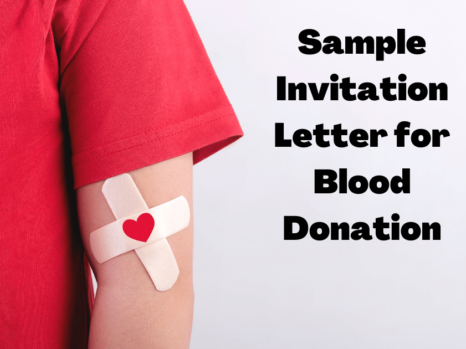While the concept of the RSVP seems to be often interpreted as a means of testing the social etiquette, anybody who has ever planned a social gathering understands how unnerving it is to be unsure of how many people will actually show up for the event.
Truth be told, not all formal invitations indicate the need for an ‘acceptance’ (or even ‘rejection’). But, in the interest of social order, let us discuss the meaning, importance and best methods to go about writing an acceptance to a formal invitation; after all, nobody wants to become an outcast on account of their lack of social decorum.
Why Write an Acceptance to a Formal Invitation
Apart from depicting you in a good light, an acceptance helps the host keep track of the number of guests they should expect for an event. It also helps for menu planning and space booking – not to mention, special menu requests and arrangements that may normally be overlooked, such as a vegetarian meal option or a seating arrangement for special-needs guests. Ultimately, it may be the difference between whether you are comfortable at the event or you are an inconvenience to the hosts.
How to Write an Acceptance to a Formal Invitation
There are various types of invitation, each of which has an ideal means of response.
-
Email Invite or E-vite:
Email or electronic invitations are often sent during intimate gatherings such as baby showers, birthday parties or simple post-work functions. Despite the seemingly casual invite, you’ll want make your acceptance more thought out than a simple ‘yes’ – here’s how to get it done
-
Sample Acceptance to an Email Invite or E-vite
Chances are, you might receive an E-RSVP card along with your invitation which might only require you to tick ‘yes’ or ‘no’ and indicate your dietary preferences or restrictions – if this isn’t the case however, here is a template you can use.
Subject Line: Accepting Your Invitation to Your Baby Shower
Dear Martha & James,
Thank you for your kind invitation to your Baby Shower. I am thrilled to celebrate such a momentous event with your family – and I’m certainly looking forward to rejoicing with you two on Saturday, the 2nd of May.
I would be pleased to help with the preparations in any way possible. Kindly let me know how I can help to make you day extra special.
Warm regards,
Juanita Michael.
-
Mailed/ Hand-delivered Invitation with no RSVP card
A physical invitation card is considered the Cadillac of invites – it often connotes that a deliberate (and sometimes expensive) effort, has been put towards informing you of an event. If the invite comes with no response card, you certainly don’t want to seem to unenthused with a casual response.
-
Sample Acceptance to a formal Invitation on Paper
While not all invites come with a response card, some of them come with a preferred means of RSVP. However, where a telephone number or email address is not provided, you may have to write one using your own stationery. In that case, here is a template you can follow.
144, Palm Groove Drive,
St. Petersburg, Florida
2nd May 2021
Dear Juanita & Philip,
We were ecstatic to receive the invitation to your wedding on Sunday, June 5th. James, baby Sue and I will be looking forward to celebrating the nuptials and reception.
Both James and Baby Sue are cinnamon intolerant. Kindly let us know if you would prefer us to advice the venue directly about their dietary restriction.
We look forward to sharing your special day with you
Regards,
Martha and James McMahon
-
Telephone Invitation
A telephone invite is the most formal of all invitations. In this case, it is best to simply let the host know if you can attend right away; Otherwise, simply check your schedule and inform them as soon as possible – usually via the same means.
FAQ About Writing an Acceptance to a Formal Invitation
Recognize any of these questions? They might come in handy if you find yourself in a bit of a pickle concerning your acceptance.
What if I’m not sure About Attending the Event?
As a rule, if you aren’t sure of your availability, it is best to decline rather than send an acceptance to the formal invitation. Alternatively, you may inform the host that you will send them a response at a given date when you have confirmed your attendance. By social standards, the acceptance must be sent on or before the host’s ‘RSVP by’ date. Otherwise, you might as well offer your apologies and decline.
How About Bringing a Guest?
This is not a question that can be answered without the consent of the host. If you are sent a plus one invite, it is best to indicate in the acceptance whether you will be indeed coming with a guest or not; if no provision is made for an additional guest, it might be impolite to show up with someone who the host is not prepared for. And no, more isn’t always ‘merrier’.
How Can I Change A Decline to Acceptance or Vise-Versa?
While this is impolite, certain situations may be completely and understandably beyond your control. Your best bet would be to inform the hosts in time to either make arrangements for you or cross you off the list – nobody likes an empty place setting at their event.
Make no mistake; a response card is merely a contemporary version of a reply steeped in customs and propriety. They must be regarded with as much attention as the rest of the invite; even more, a gesture as detailed as a handwritten note will serve as a thoughtful reminder that your hosts are important to you.



